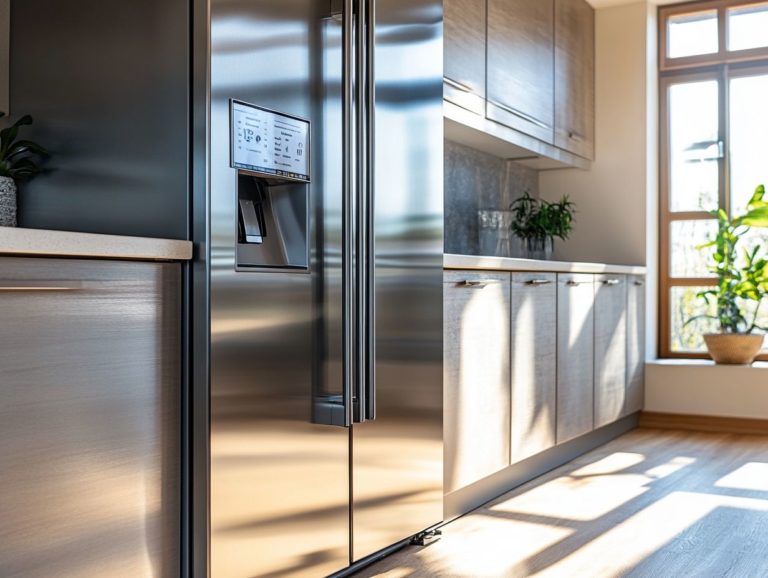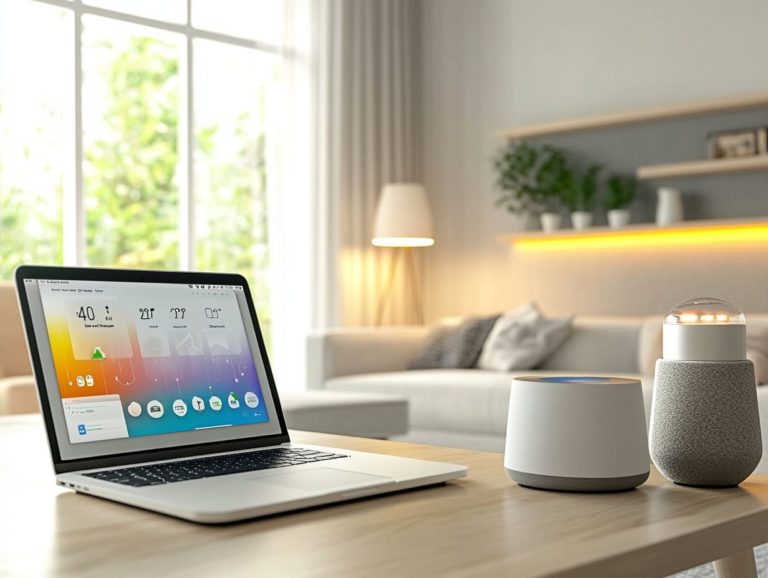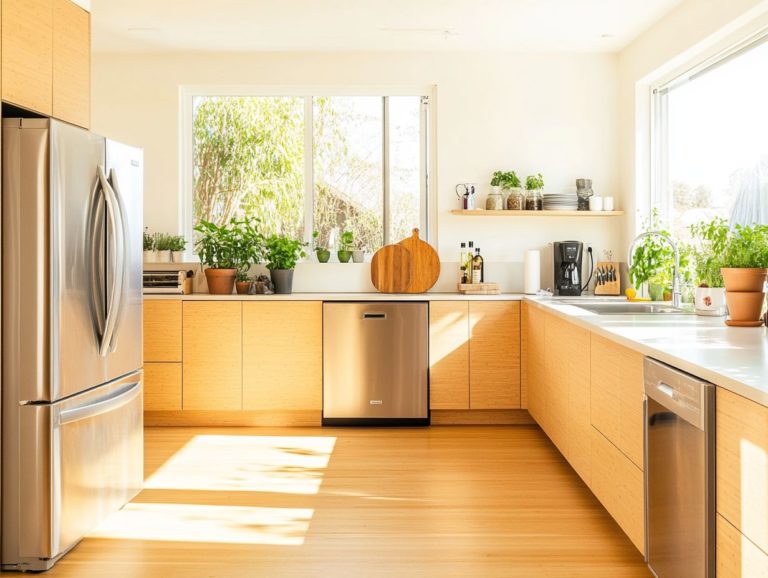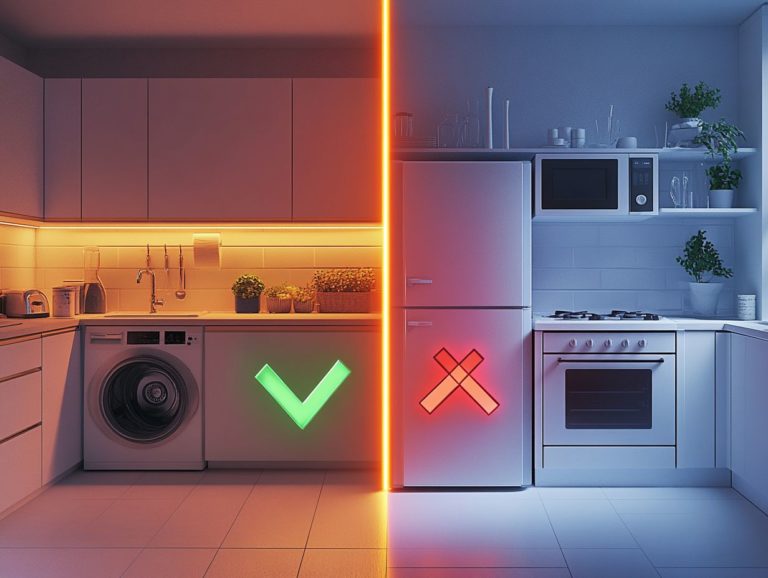Benefits of Energy-Efficient HVAC Systems
In today’s world, energy-efficient HVAC systems are not merely a luxury; they represent a savvy investment for both your household and the environment.
These systems promise significant savings on your utility bills while enhancing indoor air quality. This ensures that your living space is healthier and more comfortable.
Reducing your carbon footprint is another benefit, as these systems champion sustainable living practices and play a crucial role in safeguarding our planet.
This article will navigate you through the myriad benefits of energy-efficient HVAC systems, essential factors to consider when selecting one, and valuable tips for installation and maintenance to guarantee maximum efficiency.
Explore the insights within to learn how you can make a meaningful difference at home and beyond.
Contents
- Key Takeaways:
- Benefits for Homeowners
- Benefits for the Environment
- Choosing the Right Energy-Efficient HVAC System
- Installation and Maintenance of Energy-Efficient HVAC Systems
- Frequently Asked Questions
- What are the benefits of energy-efficient HVAC systems?
- How do energy-efficient HVAC systems save on energy bills?
- Can energy-efficient HVAC systems improve indoor air quality?
- Why are energy-efficient HVAC systems more sustainable?
- Do energy-efficient HVAC systems require special maintenance?
- Are there any tax benefits for using energy-efficient HVAC systems?
Key Takeaways:
- Energy-efficient HVAC systems can save homeowners a significant amount on utility bills, making them a worthwhile investment.
- These systems also improve indoor air quality, reducing the risk of health issues caused by poor air circulation.
- By choosing an energy-efficient HVAC system, you can contribute to sustainable living and reduce your carbon footprint.
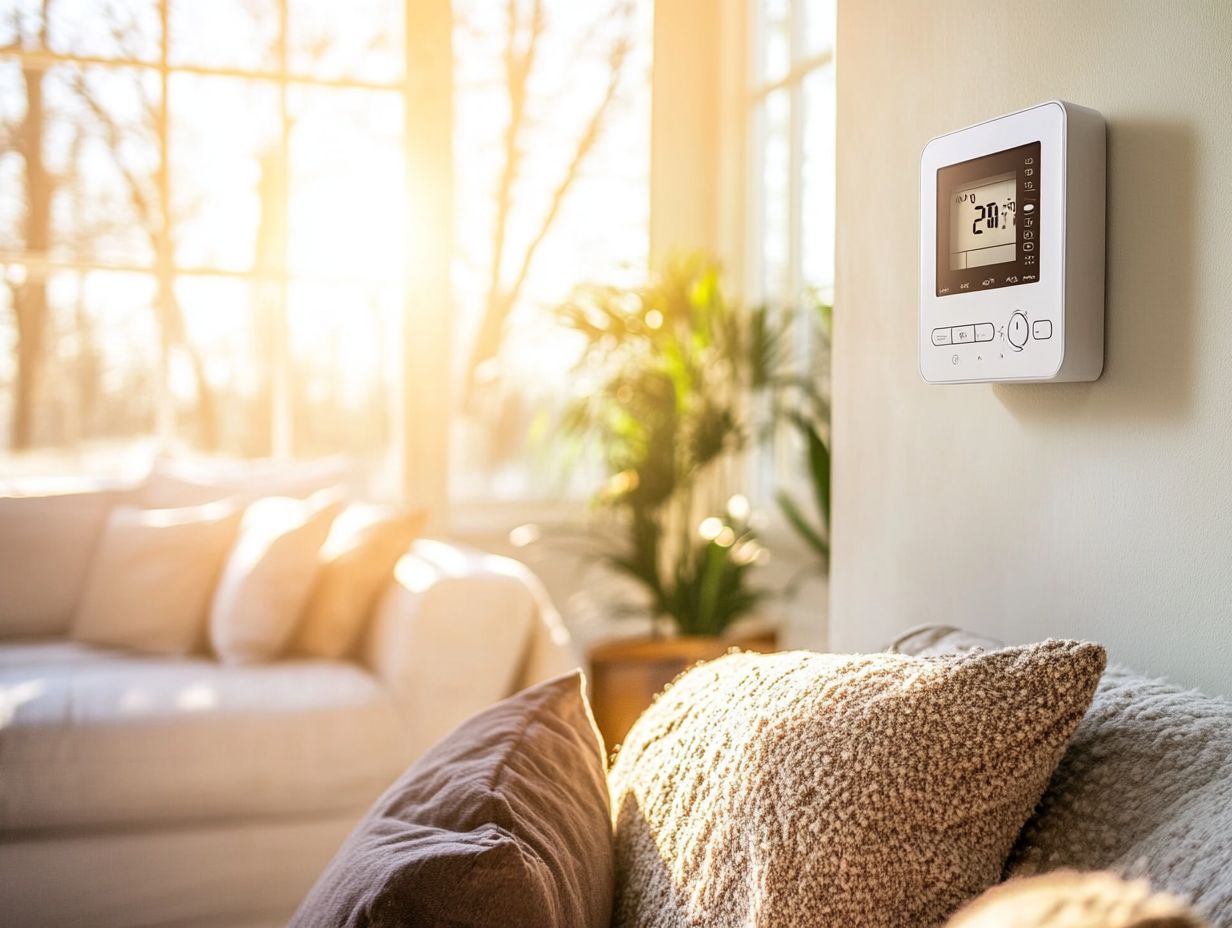
What are Energy-Efficient HVAC Systems?
Energy-efficient HVAC systems are designed to optimize both heating and cooling performance while significantly curbing energy consumption. This ultimately lowers your energy costs.
These advanced systems leverage cutting-edge technologies, including higher Seasonal Energy Efficiency Ratio (SEER) ratings this measures how efficiently a cooling system operates and eco-friendly practices that enhance indoor air quality.
By incorporating variable frequency drives and smart thermostats, you can effectively manage your energy usage. This contributes to a reduced carbon footprint and enhances your property s value.
Air-source heat pumps, for instance, draw heat from the outside air during milder months, efficiently warming your home without relying on fossil fuels. When the temperature rises, they effortlessly reverse the process to cool your indoor spaces.
Geothermal systems tap into the stable temperature beneath the earth s surface, making them one of the most energy-efficient options available. These technologies minimize energy consumption while circulating filtered air, effectively removing allergens and pollutants.
As a result, you ll enjoy improved indoor air quality and overall comfort, fostering a healthier living environment for you and your family.
Benefits for Homeowners
As a homeowner, you stand to gain a wealth of advantages by investing in energy-efficient HVAC systems. Imagine slashing your utility bills while enjoying unbeatable comfort all year round!
These systems do more than trim energy costs; their robust design leads to fewer repairs, ultimately extending their lifespan.
With features like programmable thermostats and smart controls at your fingertips, you can customize your heating and cooling to suit your preferences. This further optimizes energy consumption and elevates the overall quality of your indoor air.
Savings on Utility Bills
One of the most compelling advantages of investing in energy-efficient HVAC systems is the significant savings you’ll enjoy on utility bills over time. By opting for high-efficiency systems, particularly those with higher SEER ratings, you can dramatically reduce your energy consumption and lower your costs, resulting in a noticeable decrease in your monthly bills.
For example, standard HVAC units typically operate at a SEER rating of around 13, while modern energy-efficient models can achieve ratings of 20 or even higher. This remarkable difference leads to reduced electricity usage and lower expenses.
In practical terms, if you’re using a standard system, you might find yourself spending upwards of $1,000 annually on cooling. However, by switching to an energy-efficient alternative, you could see those costs drop significantly sometimes by hundreds of dollars.
These advanced systems not only promote eco-friendliness but also create a comfortable living environment, all without the anxiety of soaring bills.
Take the first step towards a more energy-efficient home today!
Improved Indoor Air Quality
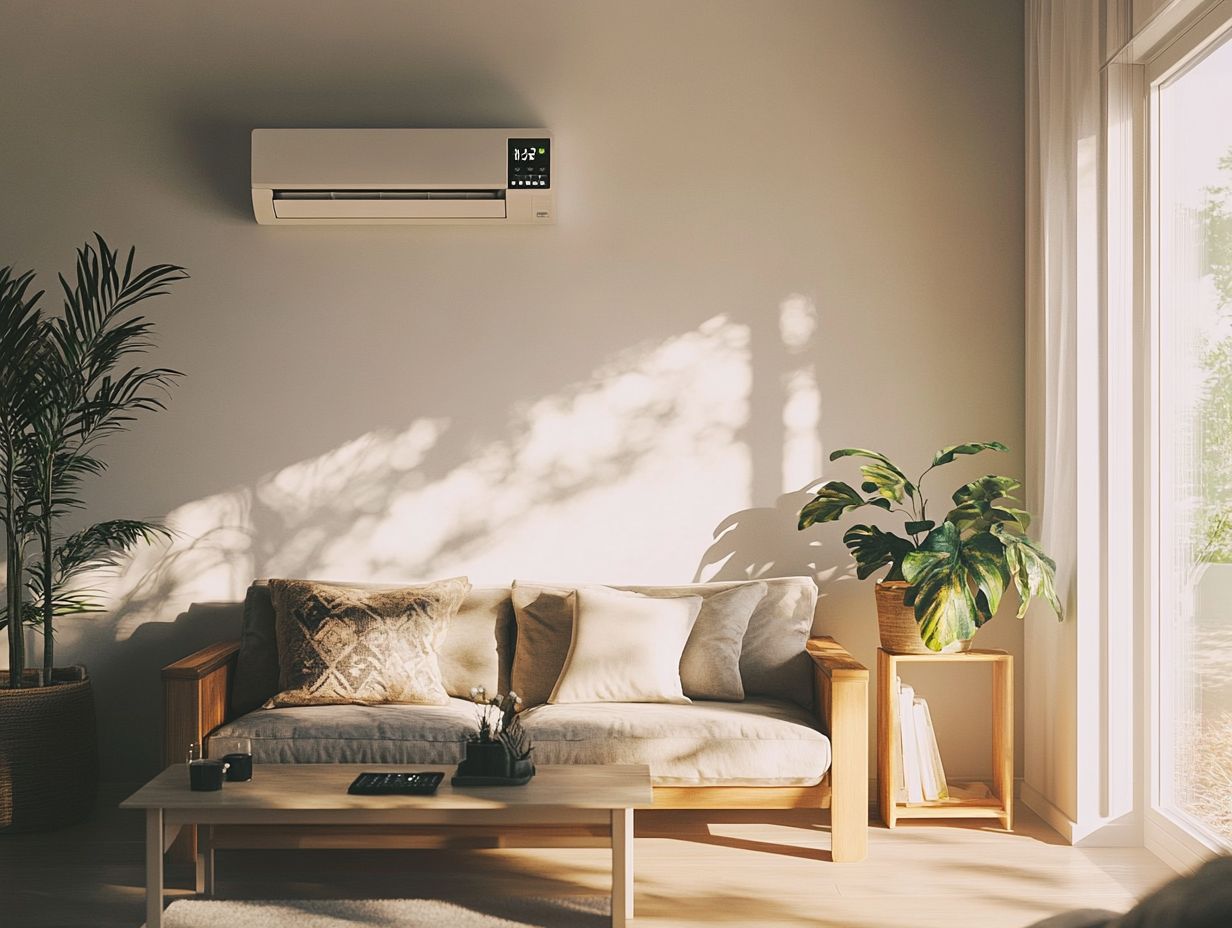
Investing in energy-efficient HVAC systems is crucial for your comfort and health! These advanced systems come with state-of-the-art air filters and ventilation solutions that effectively eliminate contaminants and allergens from your environment.
Using these sophisticated filtration technologies significantly reduces dust, pollen, mold spores, and harmful volatile organic compounds (VOCs) that often linger indoors. Better ventilation ensures fresh air circulates consistently throughout your space, eliminating stale air pockets that can lead to respiratory issues.
As a result, you and your family can enjoy fewer allergic reactions and respiratory problems. This creates a more serene living environment. By focusing on air quality, these HVAC systems enhance the well-being of residents and cultivate an atmosphere that encourages productivity and relaxation in every room of your home.
Benefits for the Environment
Investing in energy-efficient HVAC systems offers significant advantages, not just for your home but also for the planet. By choosing these advanced systems, you actively contribute to a reduced carbon footprint and support sustainable living practices.
These technologies minimize energy consumption, effectively lessening the environmental impact typically linked with traditional heating and cooling methods. This helps fight climate change.
Reduced Carbon Footprint
One of the most significant advantages of energy-efficient HVAC systems is their remarkable ability to reduce your household’s carbon footprint. By consuming less energy, these systems lower your overall energy usage and directly decrease emissions associated with power generation.
Research indicates that homes equipped with advanced HVAC solutions can cut their carbon emissions by as much as 30%. When considering the collective impact across communities, these reductions lead to substantial environmental benefits.
Take California, for example. Its commitment to energy-efficient HVAC initiatives has led to a striking reduction in greenhouse gas emissions, totaling nearly 5 million metric tons annually. These systems improve air quality and contribute to a cleaner atmosphere, fostering sustainability and enhancing health for future generations.
Contribution to Sustainable Living
Energy-efficient HVAC systems play an important role in sustainable living by harnessing eco-friendly technologies designed to curtail energy usage and minimize environmental impact.
By choosing these systems, you not only enhance your comfort but also take an active stand against climate change through responsible energy consumption.
These advanced systems boast innovative designs and materials that lower electricity demands, which means fewer greenhouse gas emissions and less strain on power grids.
With the seamless integration of smart home technologies, you can monitor and control your energy use efficiently. This enables you to make conscious choices that reflect your eco-conscious values.
Ultimately, investing in energy-efficient HVAC technologies improves indoor air quality and promotes wellness. It also aligns with a larger movement toward sustainability, resonating with your commitment to nurturing a healthier planet for future generations.
Choosing the Right Energy-Efficient HVAC System
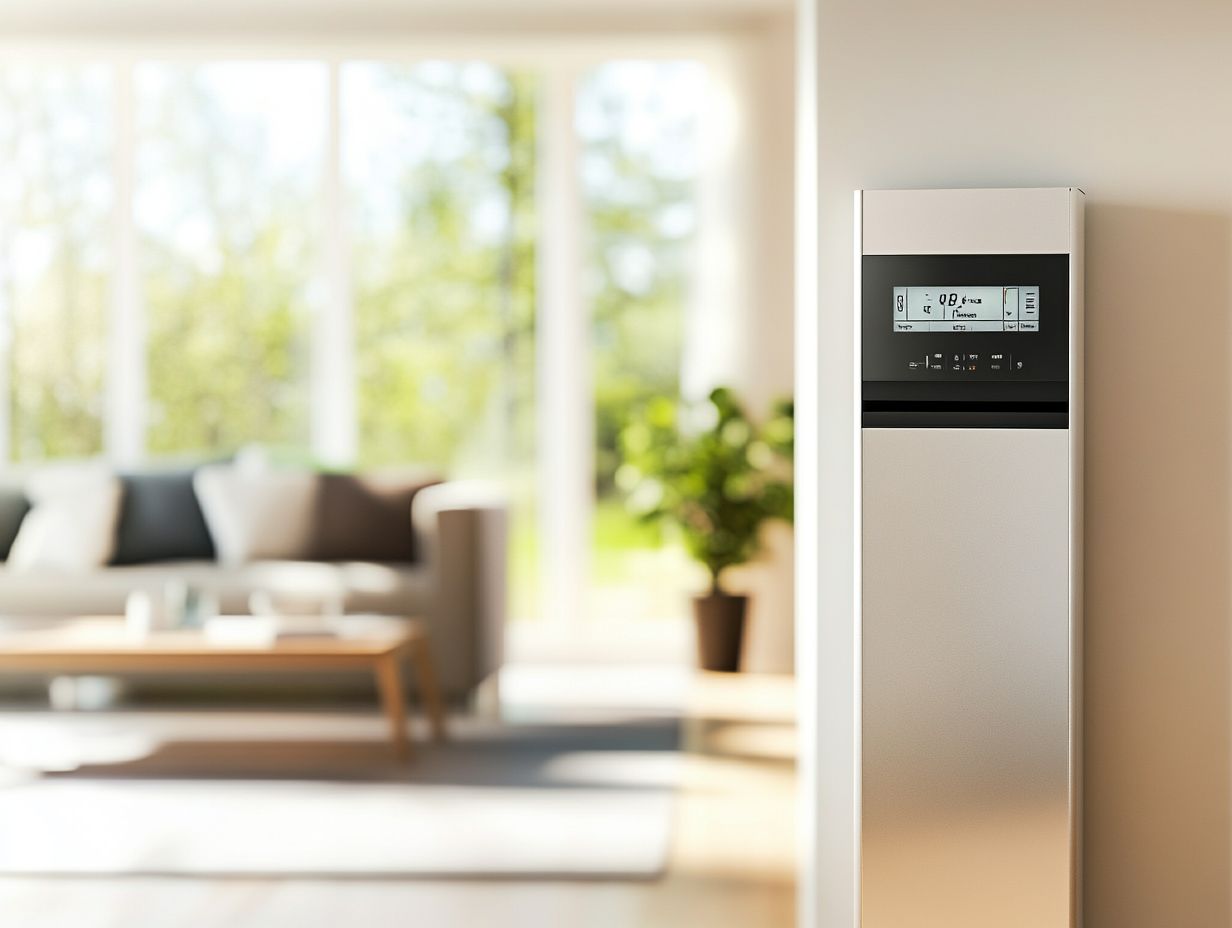
Selecting the ideal energy-efficient HVAC system requires you to consider several essential factors for optimal performance and longevity.
You ll want to evaluate the size of your space and understand the significance of energy ratings like SEER (Seasonal Energy Efficiency Ratio) and HSPF (Heating Seasonal Performance Factor). Prioritize the installation of high-quality energy-efficient equipment.
These elements can profoundly influence your energy costs and overall indoor comfort.
Factors to Consider
When selecting an energy-efficient HVAC system, consider several key factors, including efficiency ratings, the types of heating systems available, and local energy efficiency programs. These elements can significantly impact your installation costs and long-term energy savings.
Familiarize yourself with various technologies, such as variable speed compressors and smart thermostats. These can optimize your energy use while enhancing comfort. Understanding the Seasonal Energy Efficiency Ratio (SEER), which measures cooling efficiency, and the Heating Seasonal Performance Factor (HSPF), which indicates heating efficiency, will provide valuable insights into system performance over time.
Be sure to check for exciting government rebates or utility incentives that support your transition to an energy-efficient model. These can help offset your initial investment and encourage more sustainable choices.
Ultimately, understanding these factors will enable you to make an informed decision that maximizes both your savings and efficiency.
Installation and Maintenance of Energy-Efficient HVAC Systems
Proper installation and maintenance of energy-efficient HVAC systems are essential for maximizing performance and longevity.
Investing in professional HVAC installation services ensures your systems operate at optimal efficiency. Regular maintenance helps reduce energy consumption and avoid costly repairs down the line.
This proactive approach enhances the comfort of your home and safeguards your investment for the long term.
Best Practices for Maximum Efficiency
To achieve maximum efficiency from your energy-efficient HVAC system, adopt several best practices:
- Perform regular maintenance, such as keeping air filters clean and scheduling annual system checkups.
- Check the insulation around your ductwork to prevent energy loss. Seal any gaps or cracks that allow warm or cool air to escape.
- Utilize programmable or smart thermostats to adjust temperatures based on occupancy, conserving energy and lowering your bills.
- Keep outdoor units clear of debris and landscaping to prevent airflow restrictions and potential damage.
These steps help maximize your system s efficiency over its lifespan.
Frequently Asked Questions
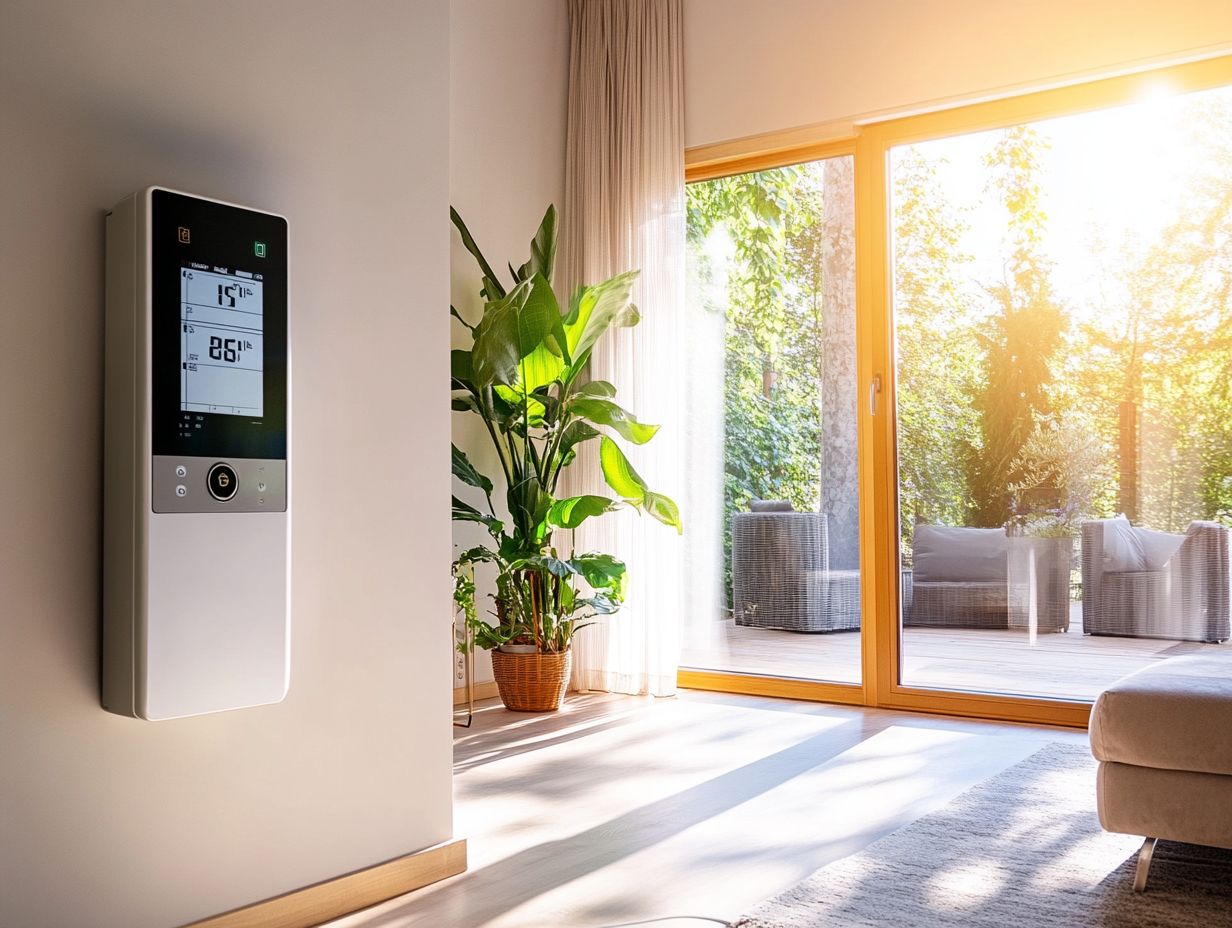
What are the benefits of energy-efficient HVAC systems?
Energy-efficient HVAC systems offer numerous benefits, including cost savings on energy bills, improved indoor air quality, and a reduced carbon footprint. Understanding the basics of HVAC energy efficiency reveals that they also have a longer lifespan and require less maintenance, making them more sustainable in the long run.
How do energy-efficient HVAC systems save on energy bills?
Energy-efficient HVAC systems use advanced technologies and components, such as variable speed drives and smart thermostats, to optimize energy usage. This results in lower energy consumption and, therefore, lower utility bills.
Can energy-efficient HVAC systems improve indoor air quality?
Absolutely! Energy-efficient HVAC systems use high-quality air filters and have better ventilation systems, helping to improve indoor air quality by reducing pollutants, allergens, and other contaminants.
Why are energy-efficient HVAC systems more sustainable?
Energy-efficient HVAC systems use less energy, reducing their impact on the environment. They also produce fewer emissions, making them a more sustainable choice for homeowners and the planet.
Do energy-efficient HVAC systems require special maintenance?
While energy-efficient HVAC systems have a longer lifespan and require less frequent maintenance, it’s still important to have them regularly serviced by a professional to ensure optimal performance and energy efficiency.
Are there any tax benefits for using energy-efficient HVAC systems?
Yes, many governments offer tax incentives and rebates for homeowners and businesses that use energy-efficient HVAC systems. These incentives can help offset the initial cost of installing an energy-efficient system.

